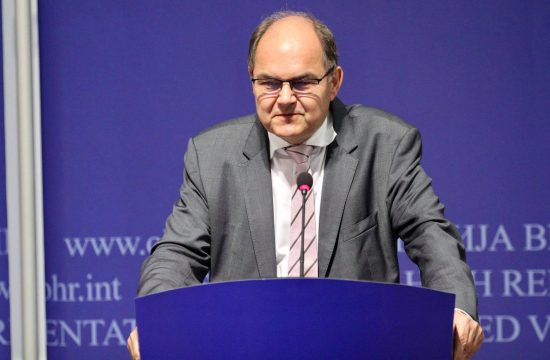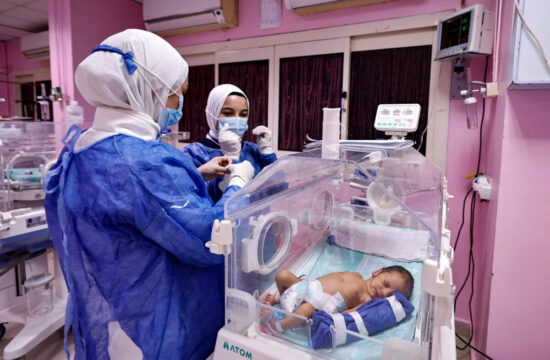
According to this year's Corruption Perception Index (CPI), Bosnia and Herzegovina ranked third-worst in Europe with a score of 35 on a scale of 0 to 100, ranking 110th out of 180 countries, with only Ukraine and Russia having a lower score.
The assessment is the same as last year and is the worst in the last decade, because BiH, unlike neighbouring countries, has not made any progress in the fight against corruption, primarily due to political obstruction of key reforms, Transparency International in BiH said.
BiH and Albania are now the worst-ranked countries in the Western Balkans, as Kosovo and North Macedonia have made some progress, primarily in prosecuting major scandals and high-ranking officials, which is almost never the case in BiH due to the trapped justice system.
The countries that ranked best globally are again Denmark, Finland, New Zealand and other western countries with a high degree of democracy. Countries affected by war, lawlessness and dictatorship are at the bottom of the list, and this year those are Somalia, Syria and South Sudan.
In a report published alongside the CPI, Transparency International specifically warns that increasing human rights violations, weakening democracy and strengthening authoritarian regimes are leading to higher levels of corruption. In the regional report for Eastern Europe and Central Asia, BiH is singled out as one of the countries with poor results, citing increasing attacks on critics of the government that controls the media, suppressing civil liberties and obstructing reforms that would lead to more transparent party funding and fair elections.
“The current political crisis, which deepens ethnic divisions and threatens the country's very existence, fuels doubts about the interests and motives of key protagonists, as it diverts public attention from human rights violations and blocks important anti-corruption reforms BiH needs to implement. The crisis also threatens the holding of the upcoming General Elections in BiH, and much-needed electoral reforms, which would ensure transparent financing and independent conduct of elections without pressure on voters, have been blocked,” the TI regional report states.
Threats of blockades of elections in October 2022 are of particular concern, while the ruling parties, through initiatives to change the election legislation, are exclusively trying to maintain their own control over the election process, it said.
The upcoming elections in BiH is the main issue in the country currently and it is an “absolute priority to create basic preconditions for holding elections, without which the country would enter a full legal and institutional vacuum in which the further survival of the state would be called into question,” said Srdjan Blagovcanin, Chairman of the Board of Transparency International BiH.
The CPI's results have been particularly affected by the lack of any progress in key reforms, primarily conflict of interest law, public procurement, party financing and the protection of whistleblowers. Also, the reform of the judiciary is completely blocked, and the judicial system is instrumentalized and captured by the ruling cartel, and requires complete reform and implementation of thorough checks of judicial office holders, TI said.
It said that Bosnia’s legislature in BiH has been “clinically dead” throughout this government term, with the exception of the parliament of Bosnia’s Republika Srpska entity, shiva focused “more on actively undermining the legal order than on any reforms.”
“On the other hand, the actions of the executive at all government levels were mostly focused on extracting public resources, which were used for personal enrichment and establishing the power of the ruling parties,” it said.
“The complete cessation of the functioning of state institutions has removed any dilemma that the country is governed completely non-institutionally,” said Blagovcanin adding that there are no longer any obstacles to corruption in BiH.
“The frantic looting of state resources, ie citizens, is intensifying. The country is on the brink of total chaos. If the parliaments do not function, if the executive power does not function, if the judiciary is captured by ethno-nationalist leaders, this country and its resources practically become completely the property of the ethno-nationalist cartel,” he said.




